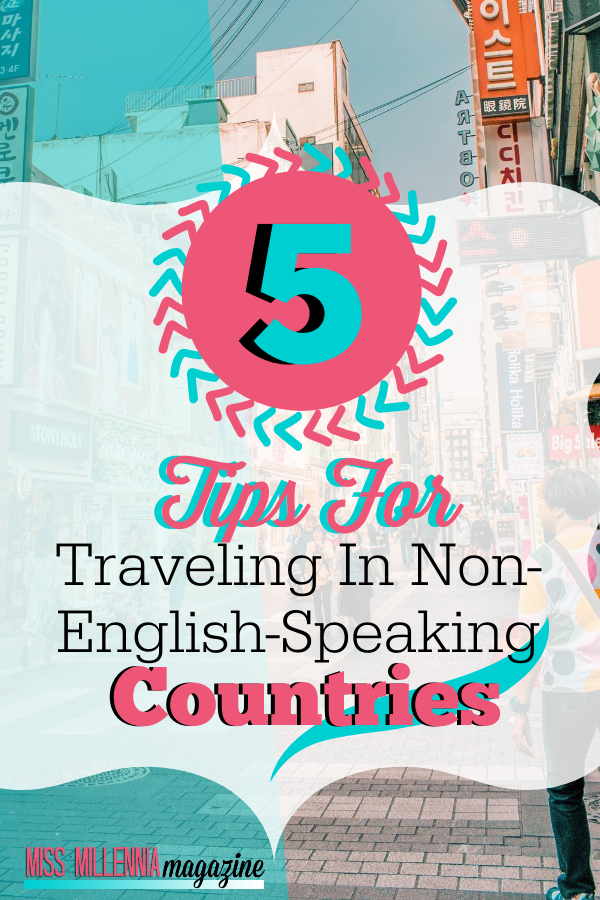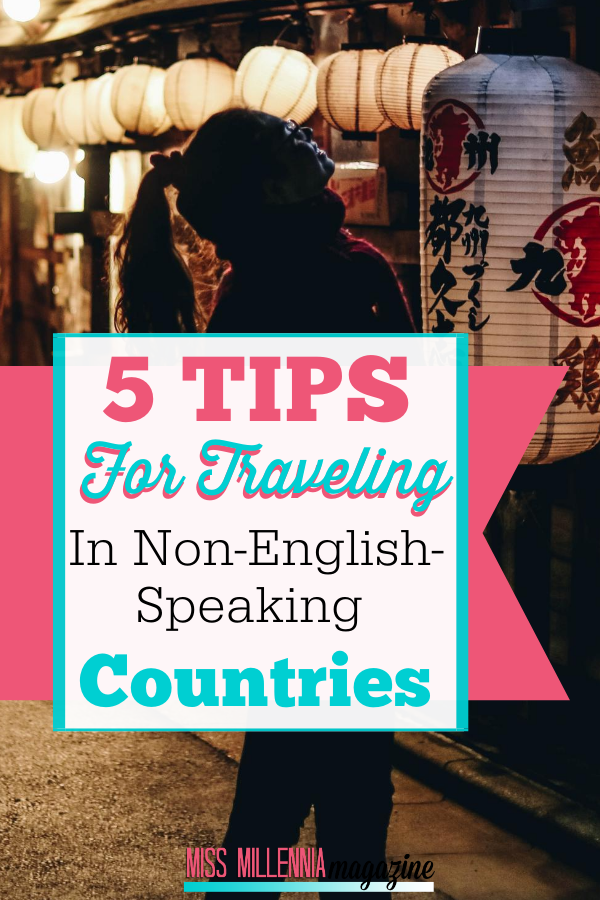5 Tips for Traveling in Non-English-Speaking Countries
Being in a country whose language you don’t speak is difficult, and sometimes scary. Of course, in many major cities across the world, most people involved in the tourism industry speak English. As an English speaker, you’ve lucked out when it comes to travel because about 750 million people speak English as a foreign language, so you could probably survive in foreign cities just fine. But if you want to truly make the most of your experience abroad, or stray from the touristy, English-friendly areas, here are some tips for overcoming the language barrier.
**This article contains affiliate links, and we will be compensated for any purchase made by clicking on them. Thank you for supporting Miss Millennia Magazine!**
1. Know some of the language.
I’m not suggesting that you can’t travel to a country unless you speak the native tongue. In the European countries alone, there are 24 official languages spoken. Obviously, learning all these before you travel would take a while. Learning a foreign language is never that easy. However, there are a few words and phrases that will make your trip a little smoother. Take a few hours before you go and start learning how to say “hello,” “please,” “thank you,” and “excuse me” to make all your interactions a bit more polite. If you can say “bonjour” to a cashier, then just point to the croissant you want and add “s’il vous plait;” you’re much less likely to be on the receiving end of the infamous French rudeness. (A side note: the French are not nearly as rude as Americans seem to think they are.)
Learn “excuse me” so you can catch people’s attention as well as apologize for bumping into them on busy sidewalks or subways in the United Kingdom or Nothern Europe. Just to plan for the absolute worse, always know how to say “police.” And of course, the most useful phrase to know in any language is “Do you speak English?” It’s just more polite to say it in the non-English countries than expecting people to understand you everywhere you go. Nowadays, million native speakers are working on improving their communication skills especially when they always engage in an English conversation.
2. Do your research before the trip starts.
This is more of a general travel tip, but it’s especially important when traveling to non-English speaking countries. Download a translating app onto your phone. If you don’t have an international data plan, buy a dictionary app which doesn’t require Internet access. Or buy a bilingual dictionary or even a wordless dictionary (like this one) that has only pictures, so you can point to the thing to which you’re referring.
Don’t spend all your money on taxis because you can’t read the street signs, put a map in your carry-on, or save one onto your phone before you go. Look up how public transportation works, using Google Translate if you must, before your trip starts. This will save money, time, and frustration once you arrive and find directions completely in Spanish. When traveling to Nordic countries or Scandinavian peninsula like Denmark Finland Iceland Norway ask the concierge where the nearest tourism office is located, if you happen to leave the map at home and don’t have a smartphone. They generally have free maps and are happy to explain things to you–in English.
3. Spring for the audio guide.
Sure, the last thing you want to do after waiting in line for a museum is to wait in yet another line for an audio guide. But trust me, most of the time, it’s worth it. While some museums abroad give the names of paintings in both the native language and English, many do not. Part of the experience will be lost when a number of people back home ask you what your favorite painting is, and you can only reply “I don’t know, the names were in Italian.” Later in time, if you get interested to learn all the spoken languages in the world then that would be an advantage when traveling.
So, get in another line and ask for an English audio guide every time you visit a museum or monument. You don’t have to use it in every room, but you’ll get a lot more out of the experience if you know exactly what it is you’re looking at. Plus, it’s cheaper than hiring a tour guide.
4. Be polite and never shout.
This may seem like common sense, but sadly, it often is not. Somehow, there are people out there who think if they simply speak louder, people will magically be able to understand English. If only that were true! If you’re interacting with someone who doesn’t speak English, or who do not speak English fluently, be as polite as possible. It really is the best way to successfully communicate. Despite the grammar rules. Smile, say ‘thank you’ often, and keep your voice down. And most importantly …
5. Be patient!
Seriously. Everything will go more smoothly if you just take a deep breath and find some patience.
Don’t hesitate to go somewhere just because of the language barrier. It may be difficult at times, but it will be more than worth the extra effort. The experience will change you for the better. Let the rest of the world know may be a barrier to easily communicate but it won’t stop you from making friends as you travel along.
Resources:
britishcouncil.org; European Union EU. European Union. United Kingdom; Personal Experience
**This post contains affiliate links, and I will be compensated for any purchases made after clicking on these links.










